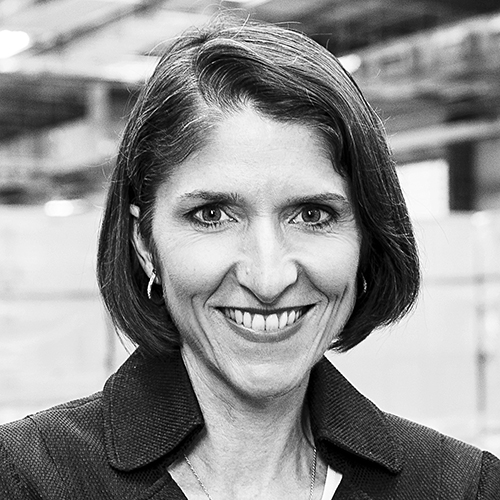When Jim Harrington is asked which professional accomplishment he’s proudest of, he doesn’t have to think long about the answer. “Our legal team has not lost an intellectual property case in the eleven years I’ve been here, which is unheard of in this industry,” he says.
In that time, the group has won or settled over forty cases. Harrington, the senior vice president and global chief IP counsel for Shire Pharmaceuticals, is quick to add, “It’s not just me, though. I work with an incredibly talented group of people. It’s the team that makes that kind of record possible.”
Of the eighty professionals in Shire’s legal department, eight attorneys work in the IP department, which focuses on three divisions—central nervous system/neuroscience and gastrointestinal conditions; rare diseases and ophthalmology; and research and development.
Harrington says the company’s number of IP lawyers will likely grow once attorneys from Baxalta, which merged with Shire in January 2016, are fully integrated. Together, the two companies will serve customers in more than 100 countries.
The Science of Law:
The Glen Woodall Case
Years before Forensic Files and CSI, Jim Harrington was spreading the word about the importance of DNA evidence.
While working as a forensic scientist for the state of New Jersey, Harrington was involved in the case of Dale Woodall, a prisoner who had been convicted of raping two women in West Virginia.
Woodall’s DNA was tested during the appeal and excluded him as the likely culprit. Harrington filed an expert report supporting the DNA evidence.
Woodall was cleared of all charges and released after serving five years in prison.
“That is one of the great things about combining with another top company,” Harrington says. “Not only do we expand our reach and gain top-of-the-line manufacturing facilities and a robust product pipeline; we deepen our bench. This merger will give us additional legal experts in rare diseases, oncology, and ophthalmology.”
Even with those additions, the department isn’t big enough for every lawyer to specialize. “We all have to be ready to handle work outside our assigned areas,” Harrington adds. “In fact, that’s why so many lawyers like to work here. They don’t get pigeonholed. One day they could be assisting with litigation, the next with an IP issue, the next with a big acquisition.”
Harrington, the first IP lawyer the Ireland-based company hired in the United States, was hired in 2004 to help defend the company against challenges to Adderall, a treatment for attention deficit hyperactivity disorder (ADHD). “Adderall was, at the time, the company’s biggest revenue producer, with 2004 sales of $607 million,” explains Harrington. “If we had lost that case, the company would’ve disappeared. It was a lot of pressure.”
With Harrington at the helm, the company filed suit against Barr Laboratories and Impax Laboratories for infringement of numerous patents related to Adderall XR, the newer, extended-release version of the drug.
The strategy Harrington used then has echoed across his eleven years at Shire and explains the legal department’s succes. “We spend a huge amount of time filing strategic patents,” Harrington says. “IP lawyers sit with the development team at every stage to see if any part of the process can be patented.
“For instance, when we acquired New River Pharmaceuticals and took over the development and production of Vyvanse, it had just one patent. By the time we put it on the market, we held eighteen patents on it.”
Another differentiator for Shire is its lawyers; every in-house attorney has a science degree. “It also helps that several of our lawyers have PhDs,” he explains. “That is invaluable when you’re filing and defending complicated pharmaceutical patents.
“I work with an incredibly talented group of people. It’s the team that makes that kind of record possible.”
“The one negative is that these lawyers are incredibly sought after,” he adds. “Two of my direct reports left in the past year, hired away by a biotech company.”
The Vyvanse case was one of Harrington’s biggest. The drug is the company’s current top-selling treatment for ADHD—it earned $842 million during the first half of 2015, about 28 percent of the company’s total revenue — and was recently approved to treat binge eating, as well. “There were multiple generic challenges against our Vyvanse patents,” says Harrington. “We beat all of them in district court and the court of appeals.”
Another secret behind Shire’s patent defense record is Harrington’s reliance on data analysis. Largely inspired by Daniel Kahneman’s Thinking, Fast and Slow—a treatise on the psychology of judgment and decision-making—Harrington’s team, which includes an outside statistical analysis firm, gathers data about the court they’re appearing in, the judge hearing the case, the jurors (if it’s not a bench trial), the types of patents that are being asserted, and the kinds of claims.
“If you look at enough data, you should be able to determine what the outcome will be,” Harrington says. “We also conduct mock trials. Our decisions whether to go to trial or settle are also determined this way. The problem is that most people become too emotional. The key is to trust the data.”
Shire also works to collaborate with manufacturers, another part of its successful model. For instance, Shire has never negotiated a “reverse settlement,” a popular approach that involves a payoff to a generic manufacturer to keep a generic product off the market.
“What we want is clarity,” Harrington explains. “If a patent has been granted, it should be respected. We need to defend them to protect our business and our patients. But in many instances, we settle with the generic manufacturer and work with them to facilitate the approval process. That’s what happened with Barr and Impact regarding Adderall. If we hadn’t done that, the generic version of that drug would’ve been delayed another seven years.”
Shire’s playbook has several moves, from data analysis to a collaborative approach and creative solutions. A unique system is the only way to achieve such a rare win record. “I believe that’s another part of our success,” Harrington says. “We try to turn as many of these cases as possible into win-wins for everybody.”


